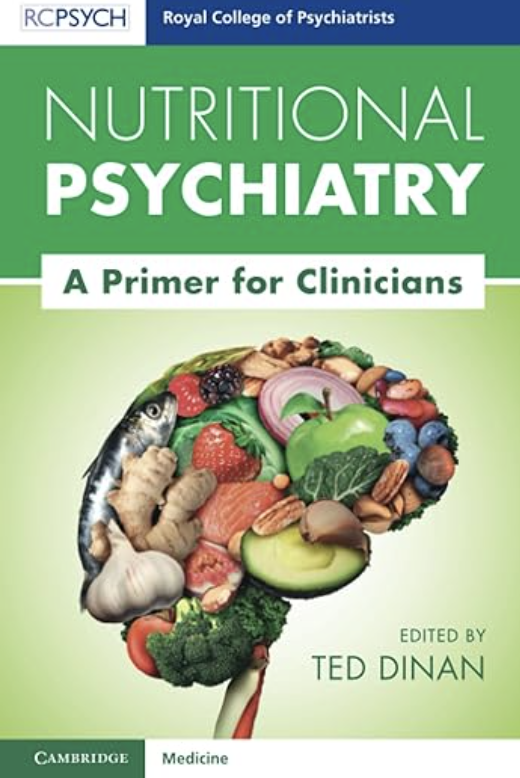|
I am amassing quite a collection of therapy memes. Who knew this would be a thing? My favorite part of this trend is that most of the images you see above are screenshots sent to me by patients. I love that we are able to share a sense of humor and laugh together. I say this as an inroad to breaking down some of the anxiety around entering therapy. Especially if you are entering therapy for the first time, that anxiety typically occurs in the face of the unknown. What will therapy be like? What can I expect? Will I have to lie down on a couch? Will my therapist say "tell me about your mother?" Will my therapist just silently stare at me? Colorado therapist Kelsey Shane says of therapy: You may cry, you'll probably laugh, you'll definitely grow! Therapy looks a bit different for each individual, and for each individual therapist. I do have a couch, but it's really more of a love seat. Most people are comfy but do not actually lie down. Sometimes people come to therapy for help in dealing with a very specific situation, for example, coping with a loss, making decisions about moving forward during a time of transition, or managing anxiety related to social situations. Others seek therapy to understand and shift long-standing problematic behavior or relationship patterns. Sometimes we do in fact talk about mom. Sometimes we game-plan how to resolve conflict at work or at home. Sometimes we practice mindfulness and specific breathing exercises to reduce the frequency and severity of panic attacks. Sometimes we unpack puzzling dreams. Sometimes we draw connections to books and films (our cultural mythology). Back in the day, I knew a perhaps surprising number of my patients' Hogwarts houses, and now I understand how others relate their own origin stories or redemption arcs to characters in the MCU. We do sometimes cry, we often laugh, and I am privileged to witness growth on a daily basis. If you have more questions or would like to learn a bit more about the process of therapy, you might enjoy the video below by psychologist, Dr. Ali Mattu in which he answers commonly Googled questions about therapy. "Psychologist Ryan Howes began National Psychotherapy Day because he believed that psychotherapy as a profession has an image problem. Therapy takes place behind closed doors, so the public relies on movies and TV to tell them what therapy is like, and those depictions are rarely accurate. Howes set out to demystify therapy, educate the public about what real therapy looks like and how effective it can be, and create a fun way to celebrate therapy, rather than hide it." On the 6th annual National Psychotherapy Day, I encourage you to learn more about psychotherapy and spread the word. You can read more from Dr. Howes and learn about how psychotherapy can help cultivate self-acceptance here. I also highly recommend the Moments of Meaning video series sponsored by National Psychotherapy Day. This video series featuring therapists speaking from the heart about the transformations that take place between therapist and patient in psychotherapy. The whole series is well done and provides an insightful and moving glimpse into real therapy sessions (all stories are shared with the permission of individual patients, and altering identifying information). If you have ever wondered about the benefits, process, or new perspectives that psychotherapy might offer, take a look at this Moments of Meaning video featuring licensed clinical psychologist, Dr. John Dilley, as he shares his experience of entering psychotherapy as a patient himself. You can read more about National Psychotherapy Day here, and find the Moments of Meaning video series here.
Facebook executive, Sheryl Sandberg, is an enormously successful technology executive (named one of the 100 most influential people in the world by Time magazine in 2012), author and speaker. Over the past few weeks, she has been making the rounds on day and nighttime talk-shows promoting something much closer to her own heart, her new book, Option B: Facing adversity, building resilience and finding joy. The book, written with Sheryl's friend, psychologist Adam Grant, is at once a deeply personal reflection on Sheryl's sudden loss of her husband Dave to heart failure at age 47, and inspiring call to find meaning, purpose, and develop resilience in the face of adversity. As Sandberg writes, we are not born with a set amount of resilience, after which small and large challenges threaten to overwhelm us. But rather, resilience is like a muscle, that can be strengthened and developed throughout our lives. Sandberg and Grant worked together to write the book and to launch Option B, an organization with the mission to bring people together to support one another and share resources from experts on building resilience. OptionB.Org is dedicated to helping you build resilience in the face of adversity—and giving you the tools to help your family, friends, and community build resilience too. Here, you can read and share personal stories, join groups for solidarity and support, and find information from experts. Option B, the book and the organization, promise to be excellent resources for those coping with loss and adversity, and all those searching for meaning and joy. Here you can read excerpts or listen to the full recent interview on NPR in which Sheryl discusses her new book and advice on how to help someone who is grieving. Below you will find the full video of Sheryl's moving 2016 commencement address at UC Berkeley in which she discusses her own grief and advice on developing a spirit of gratitude and resilience. Journaling can be an invaluable resource for therapy. When someone describes an unusually good (or bad) day in session, I often ask them to reflect on what was different. Answers of "I don't know." or "Nothing, I think." are supremely frustrating in that they leave a person feeling helpless, as though a good or bad day comes out of the blue or passes them by completely outside of their control. More often than not, there are concrete things someone did, thought, or felt that either contributed to a better day or perhaps kept a bad day or experience from "taking over" or becoming unmanageable. Take for example the few pounds we all may or may not have added over the holidays. We can be perplexed when we look at the scale now and wonder, "How did that happen?" But we also know that people who log everything that they eat or drink 1) tend to eat and drink more mindfully and healthily, and 2) can readily identify that pumpkin cheesecake or second helping that likely added to the scale come January. Journaling can provide that level of insight for your mental health. Identifying patterns can be empowering and can provide you with your own individual data on what works, and what doesn't, what contributes to a great week, and what behaviors, skills, and experiences help you nip anxiety or depression in the bud. This process can help you clarify thoughts and feelings and solve problems more effectively. Journaling can improve your body as well as your mind. University of Texas social psychologist and researcher, James Pennebaker has found that regular journaling strengthens immune cells (lymphocytes). A study published in Advances in Psychiatric Treatment noted improvements in both physical and psychological health in clinical and non-clinical groups after just 3-5 15-20 minute journaling sessions. Other research suggests that journaling offers not just emotional, but physical benefits to individuals battling terminal or life-threatening illnesses. Perhaps we see these benefits because, as Pennebaker suggests, writing about stressful events helps you come to terms with them and reduces the impact of these stressors on your physical health. Remind you of therapy? Journaling and therapy can beautifully complement one another. The work that you do journaling over the week can build on the momentum, insights, and positive changes you are developing in therapy. How to begin? When many people hear "journal," the embarrassing teenage diary tucked away in a sock drawer comes to mind. But a journal can be much more than a diary (or much less, if you like), and there as many ways to keep a journal as there are journal-ers. For those who don't fancy themselves writers, or who feel overwhelmed at where to begin, the Bullet Journal developed by Ryder Carroll offers a streamlined way of tracking daily activities, including mental health. What to journal? In addition to logging events and experiences, a journal can be used to track moods, how you feel physically (e.g., energy level, headaches), behaviors that can affect your mental and physical health (e.g., sleep, exercise, taking vitamins and medications), and self-care (e.g., socializing, meditation). Tracking can provide valuable data and trends to discuss in therapy. You may also find it useful to include post-therapy session notes (e.g., insights, reminders, topics to discuss or come back to next session). Adding space for a gratitude journal can provide time and space to reflect on positive thoughts, feelings, and experiences in a way that can actually help re-train your brain to more readily identify (rather than discount) positive experiences. Including self-care ideas for when you notice triggers or early signs of depression or anxiety can help you easily identify tried and true methods to change course or help manage those negative feelings before they become overwhelming. Here are some additional tips to get you started:
Make it yours. Your journal can be as minimalistic and straightforward or artistic and detailed as you want. Are you the type of person (this month) who delights in a To Do list? Or does a listing these tasks and obligations bring you additional stress? If so, you may find you are better served by a "Done" list. Find your own style and what works best for you. The beauty of making a journal your own is that it can change with you from week to week, and month to month. Build on what works for you, and leave what does not behind without guilt (recognizing each of these is progress in and of itself!). Finally, I'm personally a proponent of putting pen to paper. One of the benefits of a journal that you physically create yourself is that you have complete control in customizing it to fit your needs as opposed to having pre-printed pages that you don't love or use in a day planner or maintaining multiple tracking apps. That said, if a physical journal just feels too analog for your life, there are a number of apps out there that track habits, moods, and provide space for journaling. Just be aware of protecting your privacy and online presence if you choose a digital route. Happy journaling! Additional Journaling Resources: BulletJournal.com offers a videos, tips, and tutorials on how to start a bullet journal. Rachel Wilkerson Miller and Anna Borges at Buzzfeed offer a lighthearted and insightful collection of ways to use journaling to track and improve your mental health. Steven Stosney at Psychology Today, describes the research on the results of journaling and gives tips for reaping the benefits of journaling while avoiding the pitfalls.
This divisive political season and election have heightened anxiety throughout the US. A Harris Poll on behalf of the American Psychological Association found that 52 percent of American adults report that the 2016 election is a very or somewhat significant source of stress (read more here).
As we attempt as a country to come together with respect, compassion, and courage, psychologist Guy Winch gives us concrete advice on overcoming post-election anxiety. "Regardless of its source, anxiety tends to operate in similar ways, which means there are clear things you can do to manage post-election anxiety." Guy has recommendations on actions you can take now to begin lowering your anxiety. Read his full article here: Three Ways to Lower Post-Election Anxiety And remember, "sitting with emotional distress of any kind is neither wise nor necessary. If you feel upset, unsettled, and anxious—take action and make decisions that prioritize your emotional health and make you feel better." You can also view Guy's viral TED Talk on boosting emotional health below. Take care of yourself and one another out there. Here's to a new year. Out with the old, in with the new. A clean slate. A new beginning. And often a perfect time of year to include psychotherapy as we work to change ourselves and our lives for the better. I recently found myself in a discussion of new year's resolutions and the comedic and often fatalistic connotations they have come to imply. How long until you break your resolutions? How long until you fail? There is something lovely about a new year that lends itself to thinking of a clean slate, however the all-or-nothing thinking implied in our usual discussion of resolutions leads us to think that when we falter we might as well throw in the towel completely. Perhaps a better way of framing our best intentions involves a "theme" for the year, rather than a resolution. This could help you see the new habit, new relationship style, etc. as a work in progress that allows for up and down days, and improvement over the course of a year. Psychotherapy is a great place to discuss these themes and how you plan to strive towards improvement and self-understanding over the coming year. Even the process of ending of therapy, known as termination, provides an opportunity to experience a happy ending (for more on this, see Dr. Ryan Howe's discussion on Ghosting Your Therapist: 4 Reasons not to Disappear). This happy ending, relationship closure done right, can be a therapeutic experience in and of itself. The work of psychotherapy often involves uncovering themes and patterns in our lives. Where have you had a similar feeling, desire, or relationship before? Tracing the roots of current difficulties in work, love, and play, can often reveal unfinished business and unresolved feelings. Drawing connections between the stories of our past and present can ultimately empower us to choose to write new and better stories in the future. Margarita Tartakovsky, in an interview with psychologist Dr. Ryan Howes, explores the role of self-fulfilling prophecies in perpetuating these themes and cycles in our lives. Dr. Howes gives examples from his life and practice of our desire to "right" past wrongs, and how self-fulfilling prophecies dampen our insight and hopefulness that we can make positive changes. "Often self-fulfilling prophecies are an attempt to guard against grief, failure, disappointment, rejection or any other upsetting outcome. It’s an attempt to “pre-grieve something,” Howes said. “We have a belief that if we see something failing now and start grieving that loss before it happens, it won’t hurt so much.” But that's rarely the case. "A loss is a loss." Trying to grieve before a supposedly painful outcome doesn't reduce our pain. It only creates more of it. And we grieve just the same as if we'd expected success, Howes said. Click here to read the article in full.
Today is National Psychotherapy Day, a day to reduce stigma and draw awareness to the effectiveness of therapy.
"People who support psychotherapy – therapists, clients, academics, policymakers, or any other interested party – are encouraged to talk about their own experiences with therapy, contribute to low-fee and community mental health clinics, share therapy effectiveness research, and wear turquoise to show support and start conversations." If you haven't seen the Moments of Meaning series, they are definitely worth your while. Dr. Ryan Howes, founder of National Psychotherapy Day, and his team released this video series featuring therapists speaking from the heart about the transformations that take place between therapist and patient in psychotherapy. The whole series is well done and provides an insightful and moving glimpse into real therapy sessions (all stories are shared with the permission of individual patients, and altering identifying information). You can read more about National Psychotherapy Day here, and find the Moments of Meaning video series here.  In anticipation of the 4th annual National Psychotherapy Day, September 25, I invite you to check out this article on why psychotherapy is needed, effective, and lasting. The authors provide links to research on the efficacy of psychotherapy: supporting the science behind the transformative therapeutic relationship. If you or someone you care about is considering psychotherapy, this is a great place to start. When people first make the decision to enter therapy, they often feel and say things like, "I thought I could figure this out myself, but I can't" or "I swallowed my pride and called to schedule an appointment." These statements reflect an underlying sense of shame and weakness that people feel about needing or asking for professional help. This is understandable given that people often seek out therapy when they are feeling at their most stuck, most lost, or most disconnected from the people and activities they love and the person they want to be. But as a therapist, from the other side of the couch as it were, I have a very different response the people I am privileged to work with in psychotherapy. I am amazed by their courage in facing fears and challenges, by their wisdom in understanding that they don't have to do it alone, and by the hopefulness inherent in reaching out for help. Making the decision to enter therapy reflects the determination to make a change, and the hope that one's relationships and future can be better. Margarita Tartakovsky recently interviewed psychologists and other mental health professionals to shed light on Why Seeing a Therapist Makes You Strong, Not Weak. Seeking professional help is a courageous, compassionate and smart decision. Seeking help takes self-awareness, work and commitment. It means confronting challenges and working to overcome them — whether you’re seeking help because you have a mental illness or you’re feeling stuck. Aren’t these the very signs of strength? Read more of Margarita's article on PsychCentral here.
|
About the AuthorClinical psychologist Dr. Kristy Novinski contributes insights, book and film reviews, discussions of pop culture, and exploration of news and research in the field of psychology. What I'm Reading
Categories
All
|
Las Colinas Psychological Services, PLLC |
© 2023 Las Colinas Psychological Services, PLLC. All rights reserved.
|

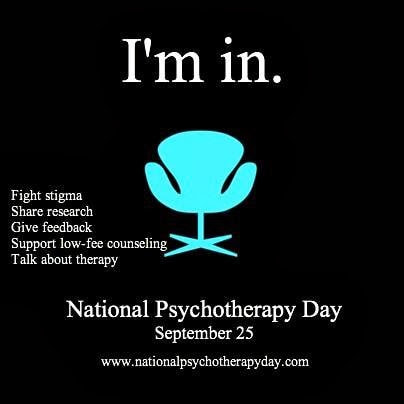
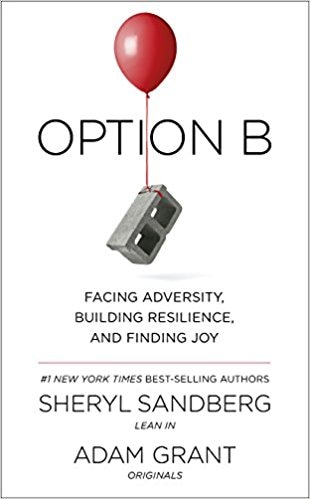

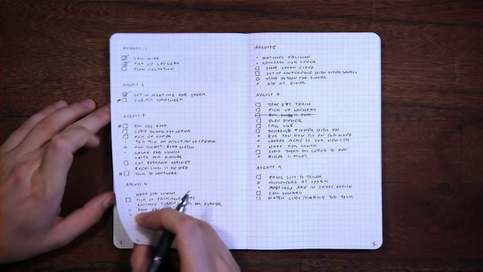
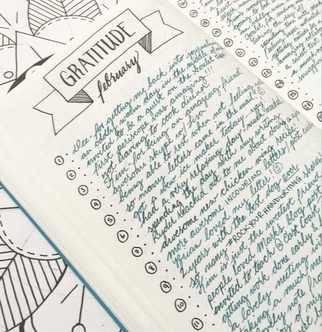

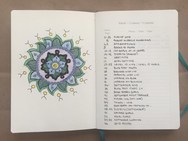
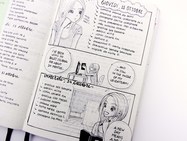


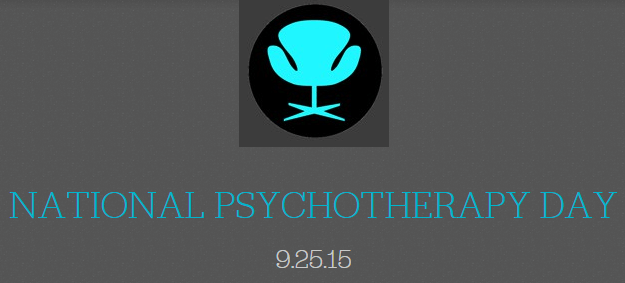
 RSS Feed
RSS Feed

